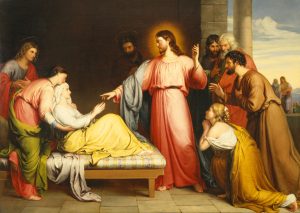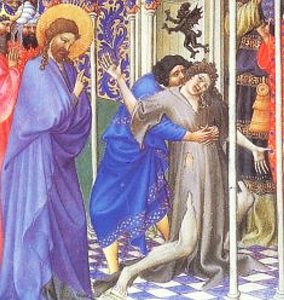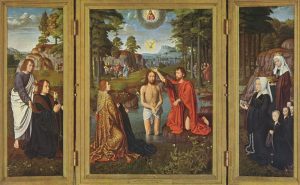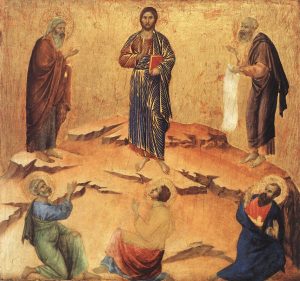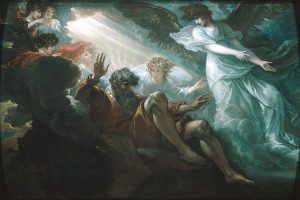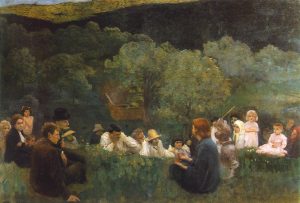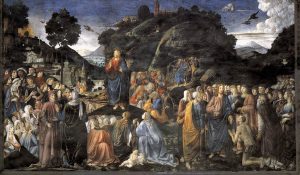Thoughts on Sunday’s Lessons for Last Epiphany B/Transfiguration
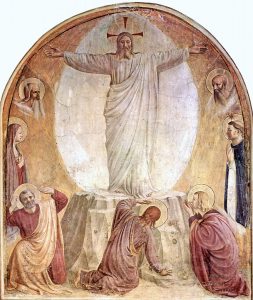
Transfiguration of Jesus (c.1437-1446), fresco by Fra Angelico (c.1395-1455). Museum of San Marco, Florence, Italy. (Click image to enlarge.)
First Reading: Kings 2:1-12
As the season after the Epiphany comes to its end on Sunday, we see the light of God revealed in shining glory. In the Gospel we will hear Mark’s account of the Transfiguration of Christ, the culmination of the series of epiphanies that have revealed Jesus as the Son of God. In those verses we will see a glowing Jesus meet the patriarchs Elijah and Moses on a mountaintop. Our first reading from the Second Book of Kings sets the stage with the ancient story of Elijah, who was taken up into heaven in a chariot of fire led by horses of fire.
Psalm: Psalm 50:1-6
We hear only the first six verses of Psalm 50, but even this snippet gives us a good sense of its resounding worship and praise. The Psalmist calls out to the people who have joined in covenant to come together in worship: Come near and hear the God of gods speak, revealed in glory, calling the the people of the earth together from sunrise to sunset. God will speak and not keep silence, we hear. God stands before a consuming flame, surrounded by a raging storm, calling the heavens and the earth to witness God’s judgment.
Second Reading: 2 Corinthians 4:3-6
God, who brought light into the world, shows us the glory of God’s image in Christ. In his second letter to the early Christian community in Corinth, Paul tells his flock that, because they believe, they see the light which those who do not believe can not see. For those who don’t believe, the light is veiled by worldy concerns, Paul writes. As Christians we are called to proclaim Jesus, not ourselves, Paul declares. We are to serve others humbly in service for Jesus’s sake.
Gospel: Mark 9:2-9
Just a few short weeks ago at the beginning of the Epiphany season we saw John baptizing Jesus in the Jordan. Now on the last Sunday of Epiphany we come to the Transfiguration, and Jesus is revealed as Messiah. With his friends Peter, James, and John looking on in awed amazement, Jesus’s clothes suddenly glow an unearthly dazzling white as he meets the patriarchs Elijah and Moses. Now God’s voice rings out again, as it had at his baptism: “This is my Son, the Beloved; listen to him.”

